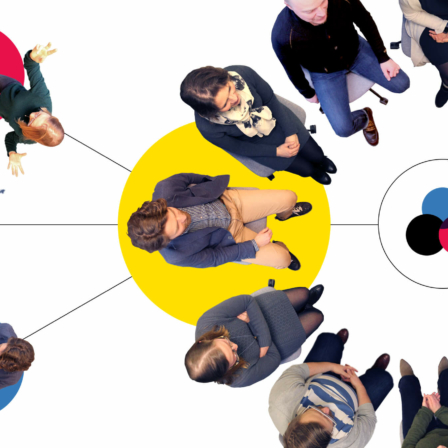Timeout’s ground rules for a constructive discussion encourage the participants to talk about their own experiences and give the others time to talk about their own. But what are the experiences and why is experience-based talk so important in dialogue?
Kai Alhanen’s work ”John Deweyn kokemusfilosofia [John Dewey’s philosophy of experience]” effectively describes, how experiences have been divided throughout history into sensory experiences and rational ideas and combinations of the two. Little by little, we have come to realise that segmentation is problematic in the ever-growing world. We know that decision-making is rarely based on facts. Experiences stem equally from everyday practical activities and our connections to the surrounding world. In the increasingly individualised and more digitised societies, the worlds of experiences drift easily apart and polarisation is deepened.
The more complex societal phenomena become, the further speech will separate itself from everyday language.
As language constructs reality, societal phenomena seem increasingly distant and more difficult for many. But what if they still touch us deep and tangibly? Should we all not be able to talk about how phenomena such as the health and social services reform or the transformation of working life touch our own lives? Most often, the ones most affected by big changes remain outside such discussions.
Many people feel that speech about such reforms is academic, full of specialist vocabulary and, as a result, beyond their understanding. In Timeout, we have come to realise that experiences are a gateway to an equal discussion between people from different backgrounds. Why, then, do we so often drift onto a general and conceptual level in important discussions without paying attention to how the topic relates to our own world of experiences?
Experiences are a gateway to an equal discussion between people from different backgrounds and starting points
Experiences are the most important soil for learning and new ideas to grow. You can learn from other people’s experiences, too. Learning from experience requires a critical analysis and reflection of the reasons behind one’s own actions. Dialogue is an excellent method for this. At best, dialogue offers a platform for creating new knowledge and understanding cooperatively, while generating new insights that shake one’s own thinking. When I understand the other person’s experience, it is easier to understand his or her position. This does not mean that an agreement should be reached, but that I can learn something totally new from the other person’s experience and ways of interpreting phenomena.
When I understand the other person’s experience, it is easier for me to understand his or her reaction to things.
Since ways of speaking are so deep-rooted in us, the relationship between experience-speech and so-called general speech is best illustrated with an example. Here you can find an imaginary example of a discussion on the improvement of local employment opportunities for young people.
Check out the Timeout-tool for encouraging participants to share their own experiences during a discussion.




















Dialogue tools
How to master a dialogue.